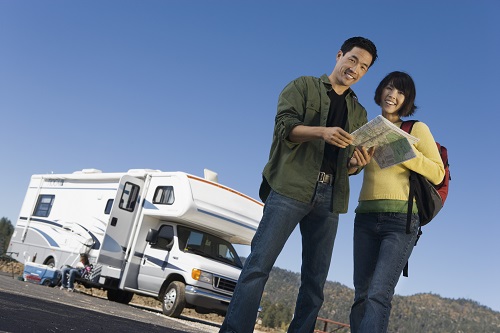
Maybe when you retired you decided to hit the road and explore all the places you never had a chance to. Maybe you’re a home school family who wanted to let your children learn firsthand about the history of the United States. Maybe you’re just the adventurous type or perhaps you simply like the peace and simplicity that living in a trailer or RV affords you. Regardless of your reasons for choosing to live in a trailer or RV home, there are a number of things to consider when it comes to the legal side of life in this setting.
Leasing Land
One of the most important legal aspects to consider when living in a trailer or RV home is how to handle leasing the land you choose to park your home on. Most trailer homes are permanently parked in a mobile home park. While you may own your home, the land you rest your house on tends to be leased. While most people don’t have a problem with this, it’s important to understand that should the park close or be sold to new owners, there are legal steps the new owners need to take. If the park closes, you should be given at least 60-180 days notice that you will need to relocate your home. Should your landlord try to give you less than that amount, you should immediately contact your lawyer for assistance.
Registration and Insurance
Another legal aspect to consider is, if you live in a mobile RV home, the importance of proper insurance. Accidents do happen while driving and sometimes even while parked in an RV. Proper insurance and making sure that your vehicle registration is always up to date is a must. Make sure you understand the laws in your state regarding RV ownership and what type of insurance you need. If you’re unsure of how to get started, there are lawyers who specialize in RV accidents and injuries who will be able to offer you some tips and information on your state-specific rights and insurance requirements when it comes to RV living.
Tenant’s Rights
Finally, remember to keep in mind your rights as a tenant if you choose to lease land to park your mobile home or RV on. Many RV and mobile home owners choose to purchase land to park on rather than renting simply as a way to avoid hassles with landlords. If you own your own property, keep in mind that you will be responsible for your own plumbing, electrical hookups, and any other land-related issue that occurs. If you rent, make sure you understand your rights when it comes to the land around you. Some tenants have problems with the plumbing at RV or mobile home parks, and landlords can be less than willing to help. You do have the right to proper plumbing, and if there are continuous issues that are unresolved, it’s important to speak with your landlord, as this may be a reason to break lease.
While there are many legal issues to consider when living in a trailer or RV, keep in mind that for most people, the benefits far outweigh any possible negative issues, and there is always legal help available should the need arise for you to contact an attorney.
This article was written together with Robert Tritter, an aspiring lawyer who looks forward to making a positive impact in the world. He writes this on behalf of DemontrondRV, a company that knows the ins and outs of RVs and has only the best deals for you. Check out their website today and see their great selection!


 12+ years sharing great legal advice
12+ years sharing great legal advice
